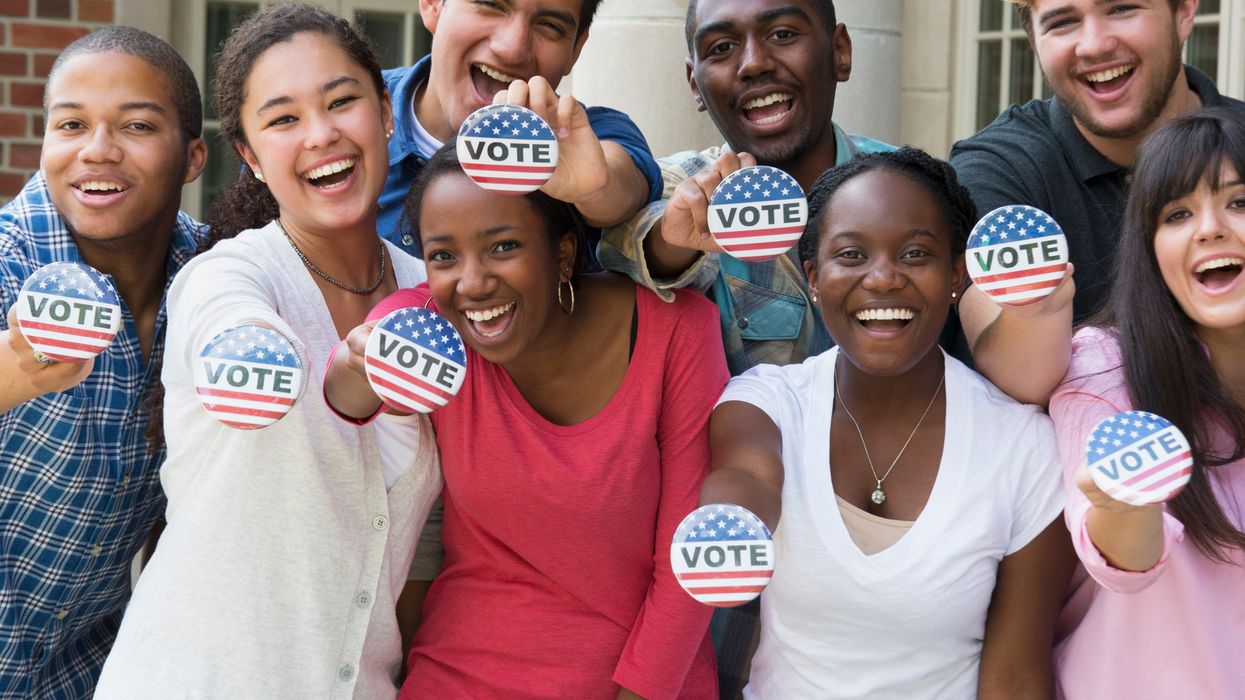In a rare show of bipartisanship, Congress has come together to produce three packages aimed at combating that economic devastation. The Coronavirus Aid, Relief, and Economic Security (CARES) Act enacted last month will invest more than $2 trillion into the economy — even wisely dedicating funds to help state election officials prepare for the 2020 election. Another stimulus bill is moving this week on Capitol Hill.
But even with the extraordinary federal investments already made, a staggering amount of uncertainty still surrounds voting for the rest of the year. The public health emergency and its stay-at-home orders nearly nationwide have forced more than a dozen states to delay primaries.
As timelines show a slowing of the Covid-19 spread continuing to extend into late summer, our elected leaders need to start asking themselves an important question: What happens if the coronavirus impacts the November election?
Unfortunately, widespread confusion and uncertainty is likely to get worse for voters before it gets better. Even in the best scenarios, voters will inevitably face questions about where to vote, if their election is being held, alternatives to voting in person and complying with federal guidelines for ensuring their own safety.
The latest coronavirus aid package looks to be relatively tightly focused on replenishing the stimulus programs, keeping small businesses afloat, helping hospitals and expanding virus testing.
Talk of what might be in a fifth coronavirus package is already getting started, however, and thankfully those discussions are focused partly on helping state and local governments ensure the bedrock institutions of our nation are protected. And an essential part of that needs to be helping young voters get the information they need to find their polling location, register to vote and actually cast their ballot.
Experts on voting behavior have extensively documented the unique challenges facing college students trying to vote. These include voter ID laws, limited on-campus polling locations, cumbersome proof-of-residency requirements, inflexible work and school schedules, the sudden closing or changing of polling places, lack of child care or elder care, and hours-long wait times to cast a vote.
Meanwhile, today's students are the most diverse in history — with more student-parents, first-generation students, low-income students and students of color than ever before. So we can safely assume these barriers will impact more students as you add the coronavirus into an already confusing voting process.
Students deserve clear information on how, where and when they can vote. That's why we are pressing Speaker Nancy Pelosi to include legislation dubbed the HSVA, for the Help Students Vote Act, in the next legislation.
The HSVA has been gathering congressional support for years and was included in the comprehensive democracy reform package, dubbed HR 1, the House passed last year. Championed by Cory Booker of New Jersey in the Senate and a fellow Democrat in the House, Raja Krishnamoorthi of Illinois, the bill would empower colleges and universities with the resources they need to ensure their students know how to vote, where to vote and where they can go to get their questions answered.
With so much uncertainty facing voters this November, it's as important as ever that new voters have a trusted source of reliable voting information. The HSVA would instruct each college or university to designate a campus vote coordinator to be responsible for providing up-to-date voting information, be available to answer student questions and communicate with their campus about upcoming deadlines.
Students already look to their colleges and universities to help them transition into adulthood and understand how to navigate complex processes for the first time. In fact, more than 500 institutions nationwide have already recognized this important responsibility and designated a campus vote coordinator. By including the HSVA in coronavirus legislation, Congress can ensure these resources are available to every student — whether they attend a four-year college, community college, tech college or any other institute of higher learning.
But advocates need to start talking to their members of Congress about the HSVA now. We need to make it clear to Congress that ensuring voters have the information they need to cast a ballot isn't negotiable. It's the most fundamental right we have, and we have a responsibility to ensure everyone can exercise it.



















